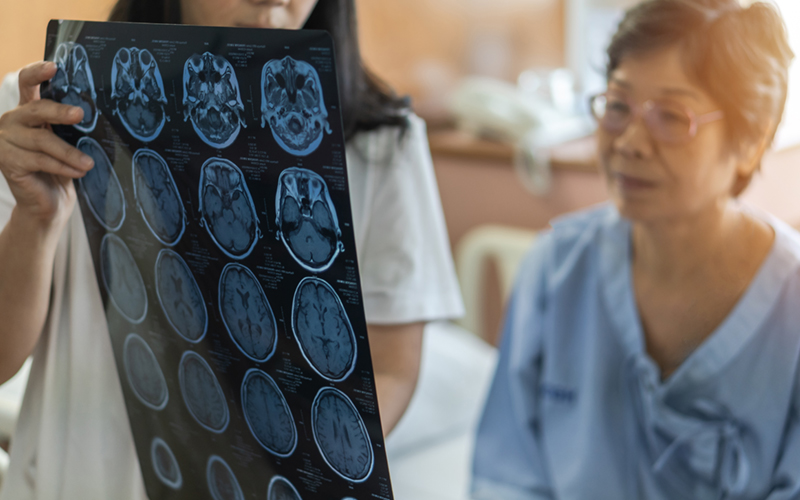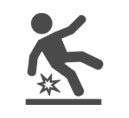Huntington Beach Traumatic Brain Injury Lawyers
- 550+ Google 5-Star Reviews
- $1 Billion won over 15 years
- Won’t settle for low offers, not afraid to fight for max value

Get a Free Case Evaluation
No fees until we win!
All San Diego Case Types

Personal Injury

Brain Injury

Car Accident

Slip & Fall

Truck Accident

Wrongful Death
Huntington Beach Traumatic Brain Injury Lawyers
With world-class surfing and an abundance of outdoor opportunities at places like Huntington Beach Central Park, the Bolsa Chica Ecological Reserve, and the Shipley Nature Center, Huntington Beach is a dream come true for those with an active lifestyle.
However, when those who live, work, or visit the area suffer an accident that results in a traumatic brain injury due to someone else’s carelessness or recklessness, they may recover damages with help from an experienced Huntington Beach traumatic brain injury lawyer from Gomez Trial Attorneys.
The Main Causes of Accidental Brain Injuries in Huntington Beach
An acquired brain injury is an injury that is not hereditary, congenital, degenerative. It is, instead, damage sustained by internal or external forces. There are two types of acquired brain injuries, including traumatic brain injuries that are a result of a bump, blow, or jolt to the head or body, and non-traumatic brain injuries that are a result of toxic exposure, lack of oxygen, or certain medical conditions.
Depending on the specific circumstances, accidents can cause either of the two types of brain injury:
- Traumatic brain injuries: Caused by motor vehicle accidents, falls, being struck by an object, violent acts (such as domestic violence), assault, child abuse, military service-related causes (such as explosive blasts), and injuries resulting from contact sports or recreational activities, such as diving and surfing.
- Non-traumatic brain injuries: Caused by exposure to lead paint, carbon monoxide or other noxious substances, and lack of oxygen as the result of near-drowning, choking, suffocation, electrical shock, drug overdose, or seizures.
Disabilities Resulting From Huntington Beach Brain Injuries
The brain is a complex organ that controls all of the functions and involuntary responses of the body. As important as the organ is, the brain only has a limited ability to heal itself from injury, which is why damage to the brain is generally permanent. The brain is divided into six different sections, known as lobes, which are each responsible for certain functions of the body. The type of disabilities an individual will have after suffering a brain injury depends not only on the severity of the injury, but also on which lobe sustained the damage, and even which side of the brain was injured.
A look at the functions controlled by each lobe and the likely disabilities that result from the injury includes:
- Frontal lobe: The frontal lobe contains many important functions that relate to your personality, including behavior, impulse, and emotional control; organization; the ability to recall events; the ability to speak; concentration; awareness of abilities and limitations; and organization. Individuals who suffer injury to their frontal lobes can have difficulty controlling emotions and behavior, speaking, and recalling events.
- Temporal lobe: The temporal lobe’s responsibilities include memory, the ability to understand spoken language, hearing, and organization. Injuries to the temporal lobe result in difficulties with communication and memory.
- Parietal lobe: The parietal lobe is responsible for functions like the sense of touch, depth perception, visual perception, and identification of sizes, shapes, and colors. An injury to this region of the brain can result in difficulties with the primary senses of touch, taste, sight, smell, and hearing.
- Cerebellum: The cerebellum’s main responsibilities include balance, coordination, and skilled motor activity. Cerebellum injuries often create difficulty with balanced and coordinated movement.
- Occipital lobe: The responsibility of the occipital lobe is to control visual function. An injury to this part of the brain can result in permanent blindness or difficulty in recognizing the size and shape of objects.
- Brainstem: The brainstem is the part of the brain that controls the body’s involuntary responses, such as breathing, heart rate, consciousness, and the body’s sleep/wake cycle. Damage to this part of the brain is generally catastrophic or even fatal, as the body cannot live independently without the proper function of its involuntary responses.
There are two sides of the brain—right and left—that each inform certain personality traits as well as the ability to use the opposite side of the body. Injuries occurring to one side of the brain will have a different impact than the same injury occurring on the other side.
- The right side of the brain controls movement on the left side of the body and is also responsible for certain traits, such as creativity, imagination, empathy, and figurative thinking. An injury to the right side of the brain can result in neglect of the left side of the body as well as visual-spatial impairments, loss of visual memory, decreased awareness of deficits, loss of big picture type thinking, and altered creativity and music perception.
- The left side of the brain controls movement on the right side of the body, as well as traits like analysis, logic, precision, literal thinking, organization, and detachment. An injury to the left side of the brain can result in neglect of the right side of the body in addition to difficulties communicating, catastrophic reactions (such as depression or anxiety), impaired logic, and sequencing difficulties.
Despite the severity categories of mild, moderate, and severe that doctors use to describe brain injuries, there is nothing mild about any type of brain injury. Even concussions, which are categorized as “mild” traumatic brain injuries, can result in lifelong complications, such as chronic headaches or fatigue, and can cause difficulty with memory.
Brain Injuries Result in Costly Complications
Aside from the deficits that are caused by damage to the brain, individuals who have suffered a brain injury often experience complications that can require further medical treatment shortly after the injury occurs, or even weeks or years later. It is estimated that the lifetime expenses of treating a brain injury fall in the range of $85,000 to $3 million.
Some of the complications commonly experienced by those who have incurred a brain injury include:
- Fever and infection: Infections are common after a brain injury. In traumatic injuries where an object has penetrated the skull, an infection can be caused by the introduction of bacteria into the protective tissue that covers the brain. Additionally, infections can occur in other parts of the body, such as the lungs, resulting in pneumonia, or in the urinary tract. While fever is often the first sign of an infection, there are other reasons for a brain-injured person to experience a fever, including damage to the part of the brain that controls the body’s ability to regulate body temperature.
- Blood clots: The injury to the brain can also result in damage to the blood vessels in the head, which increases the risk of stroke. In addition, blood clots occurring in the arms and legs of an individual who is immobile after incurring a brain injury—known as deep vein thrombosis—can result in pain, inflammation, and a potentially threatening condition known as pulmonary embolism, which occurs when the blood clot breaks free and travels through the circulatory system to the brain.
- Seizures: Seizures are common in the early hours and days after the injury occurs, and many brain-injured patients are given anti-seizure medication to prevent this dangerous condition from occurring. Sometimes, individuals will experience seizures months or even years after the injury occurs. Recurrent seizures after a brain injury are referred to as post-traumatic epilepsy.
- Hydrocephalus: Hydrocephalus is a condition in which cerebral spinal fluid builds up on the brain, increasing brain pressure and potentially leading to more damage. To prevent this from occurring, individuals suffering from hydrocephalus will often undergo a surgical procedure to place a shunt that drains the fluid away from the brain and into other parts of the body.
- Heterotopic ossification: Up to 20 percent of individuals suffering a brain injury will experience a condition called heterotopic ossification, which causes an extra bone to form in a part of the body where bones are not normally located. The most common area for this to occur is within the joints of the shoulder or hip. The condition often results in pain, inflammation, and loss of range of motion in the affected limb. This condition is commonly relieved through a surgical procedure to remove the extra bone material from the joint.
Impacts on All Aspects of Life
The deficits created by a brain injury result in extraordinary impacts on all aspects of a brain-injured person’s life, and often severely damage the lives of his or her loved ones as well.
Some of these impacts include:
- Finances: Complicating the high costs of treating brain injuries is the reality that many people cannot return to work after their injury. In fact, some can never work at all. Studies indicate that more than half of all homeless adults in the U.S. have been the victim of brain injuries, with many of those injuries serving as the catalyst for homelessness.
- At home: Financial stressors are not the only impact caused to the home life of the brain-injured person and his or her family members. Many family members find that their relationship with their loved one is completely different after the injury. Children and spouses must often act as caretakers, while spouses often find that their partner’s injury caused his or her sexual appetite, self-image, or even sexual preference to change. Physical deficits and difficulties with emotional or impulse control can result in the injured person and his or her loved ones to feel isolated and as though no one understands what they are going through.
- At work: Those who can return to work after their injuries often find that they must modify their schedules to accommodate their injuries. This can include working fewer days or shorter days, taking longer breaks, or needing a lighter workload than they could previously handle. Some individuals must retrain to work in different positions or even in a different industry to succeed in the workplace following a brain injury.
- At school: Brain injured children do not fare better than adults when it comes to recovery. Instead, the deficits that children acquire as a result of their injuries may not present until they continue to develop and face the increased societal expectations that come with growing older. Brain injured children often require assistance at school through the use of a paraprofessional who can help them to remain organized, modified testing and grading to account for the impacts of the injury, longer breaks, fewer days, recorded lessons to help with memory deficits, or even a self-contained classroom to assist the child in a smaller setting with behavioral issues stemming from the injury.
- In the community: Brain injured individuals can’t often participate in community events as a result of the physical and psychological constraints that the injury places on them. They can’t always participate in the hobbies they formerly enjoyed and can have difficulty maintaining friendships.
Recovering Damages After Sustaining a Huntington Beach Brain Injury
There are few injuries that one can suffer that result in as many impacts and as high of expenses as a brain injury does. Those in Huntington Beach who have suffered a brain injury as the result of someone else’s careless or reckless actions can recover damages related to their injuries from the at-fault parties by calling a traumatic brain injury lawyer. California allows the recovery of economic damages, such as medical costs, lost wages, and loss of future earning capacity, as well as non-economic damages due to the many impacts of the injury on their daily lives.
Although feeling alone after suffering this type of injury is common, you don’t have to be alone in your fight for compensation. Let the experienced brain injury lawyers at Gomez Trial Attorneys explain this legal process to you and talk to you about your case. For a free case evaluation, contact us online or by calling (619) 237-3490.
Our Process... Easy as 1. 2. 3!
Call Us
We will determine your case and submit
We get to work
You will get regular update from us
Win
Collect your compensation

550+ 5 Star Reviews
-
“John helped me find doctors, he referred me to his neurologist, his physical therapist, I mean, anything I needed he was right there, every step of the way. I couldn’t have asked for a better result from all of this, I would absolutely recommend Gomez Trial Attorneys.”
-
“During the time I was working with Gomez Trial Attorneys, they treated me very, very well. 100% of the time, they believed me, and they were very compassionate. They felt sorry for what happened and they understood the therapy process.”
-
“They held my hand the whole time and kept me in the loop every aspect of my case which was very refreshing to me. They helped me get my settlement offer as fast as possible and I was able to keep my farm”
-
“The Gomez experience was the best experience it could be for me really, only positive things to say. They really were there every step if the way. Thanks to Gomez Trial Attorneys my dad is able to support my family as a single father”
-
“He opened the door for me to join his firm to help other brain Injury survivors and I never met another firm who is like this who was so understanding and caring who took the extra step and walked the extra mile with their clients and this is the best”
-
“I am very satisfied with the outcome with Gomez and I would definitely recommend Gomez to anybody, we tell people all the time, Get Gomez! They are really thorough with everything and they make you feel real comfortable.”
-
“Just helped us through, guided us through, I kept notes all those years, we had questions all the time and they would always keep us informed of what was going on. They just unlayered it, layer by layer, I’ve never seen anything like them. Thank God for them.”

